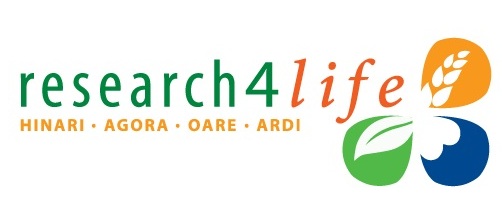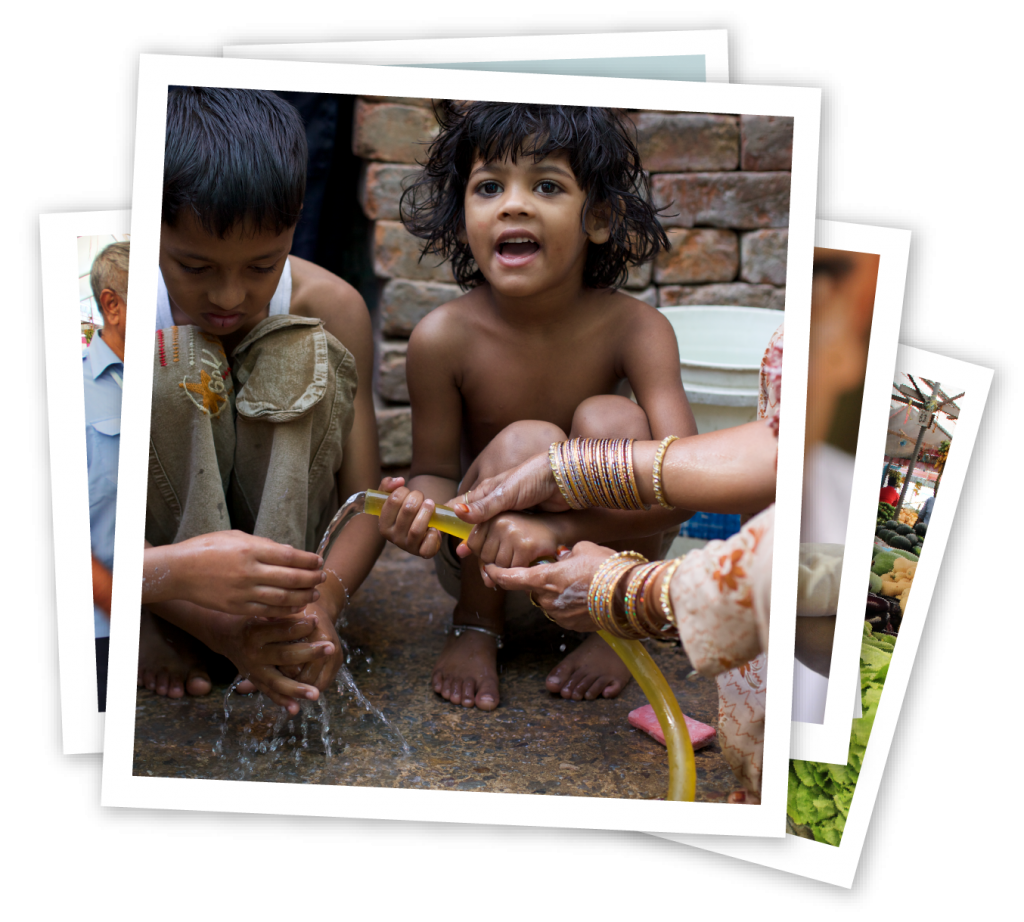
Research4Life: Fast Facts
195 participating publishers
116 developing countries
8,000 academic institutions
15,000 journals, 33,000 e-books
IPA: What is the big idea behind Research4Life? What problems does it seek to address?
Richard Gedye: Research4Life is a public-private partnership of the WHO, FAO, UNEP, WIPO, Cornell and Yale Universities and the International Association of Scientific, Technical & Medical Publishers (STM). Working together with technology partner Serials Solutions, the partnership’s goal is to reduce the scientific knowledge gap between industrialized countries and the developing world.
Researchers, policy-makers, clinicians, students and teachers working in developing countries have historically suffered from a lack of access to up-to-date scientific literature, essential for furthering studies, discovering evidence, sharing findings, and informing teaching, practice and public policy. Most university libraries and research organisations in low-income countries do not have the budgets to pay for important peer-reviewed journals, a resource fundamental to the work undertaken in these very institutions.
In a survey conducted by the World Health Organization (WHO) in 2000, researchers and academics in developing countries ranked access to subscription based journals as one of their most pressing problems. In countries with annual incomes of US$1000 and less per person, 56% of institutions surveyed had no subscriptions to international journals.
In March 2001, representatives from the WHO met with six of the largest international scientific publishers to explore ways of closing this critical information gap. At that meeting, a public-private partnership was born which would provide those working within institutions in the world’s poorest countries with this essential access and which would eventually become known as Research4Life.
The Research4Life initiative currently operates through four programmes:
•HINARI (Access to Research in Health) sponsored by the World Health Organization, in co-operation with Yale University Library – launched in 2002
•AGORA (Access to Global Online Research in Agriculture) sponsored by the Food and Agriculture Organization, in co-operation with Cornell University Library – launched in 2003
•OARE (Online Access to Research in the Environment) sponsored by the United Nations Environment Programme, in cooperation with Yale University’s School of Forestry and Environmental Studies – launched in 2006
•ARDI (Access to Research for Development and Innovation) sponsored by the World Intellectual Property Organization. ARDI is our newest programme, which was accepted into Research4Life at our annual General Partners Meeting in July 2011.
IPA: How much content is available through Research4Life and how many institutions are accessing it?
We now make available, to nearly 8,000 eligible institutions in 116 qualifying developing countries, online access to 15,000 journals, 33,000 eBooks and 120 databases and other information resources. Institutions in 77 of the world’s poorest countries receive free access to these resources. Institutions in a further 39 countries pay US $1,500 per year for a subscription to the Research4Life content – an effective discount of over 99.9%. The publisher partners have agreed to waive any right to the access fees collected from these latter institutions, in order to provide funding which enables WHO, FAO, UNEP, and WIPO to ensure that access to these valuable resources is supplemented by training in their use, via a programme of training that embraces authorship skills, information searching skills, reference management, and other aspects of information literacy.
IPA: In the absence of access fees, what are the benefits to publishers of being involved?
They get a seat at the policy making table of the largest of the collaborative developing country initiatives. They have an effective response to critics who maintain that the mechanism of copyright and content licensing is a barrier to the provision of access to peer-reviewed scientific research in the developing world.
Research4Life helps fulfill two briefs in the strategy of most scientific publishers – a desire to exercise corporate social responsibility and a desire to ensure that, when developing countries realize the economic and social growth that access to cutting edge evidence based scientific research may in fact help nurture , potential markets for published scientific research make a relatively smooth transition to real markets, based on an established familiarity with the content, and an appreciation of its value and how to leverage that value to extract further benefit.
IPA: Can you quantify the impact which Research4Life has had for researchers?
Our website has many case studies revealing the impact. Among other stories, Research4Life:
•allowed a doctor in Ethiopia to successfully treat a patient with a rare and serious condition, and helped his hospital to deliver more effective training to orthopaedic physicians
•enabled local researchers, scholars and scientists at a Malawi agricultural college to produce quality and well researched project reports, scientific papers, theses and dissertations
•enabled a Nepalese paediatrician to save children’s lives through better treatment of diarrhoeal diseases, at the same time as developing his hospital’s journal into a scientifically rigorous publication
•helped a physician to improve the lives of HIV-infected children in Zambia
See also the video.
•allowed a Nigerian researcher to complete his PhD and other research on organic agriculture, biopesticides and biofertilizers, while facilitating his acceptance into the global research community in his discipline
•helped a researcher from Burkina Faso to develop better and more informed scientific writing skills, produce focused research that he can discuss with top researchers worldwide, compete more effectively for research funding, and deliver better teaching programmes
See also the video.
•allowed a Sudanese policy-maker to introduce evidence-based policy development designed to improve the Sudanese people’s health in the long term
•enabled a midwife to improve maternity care in Zimbabwe and reduce maternal and neonatal mortality rates
•helped an Ethiopian physiotherapist find better ways to treat his patients and teach his students
See also the video.
IPA: What role do librarians play in the Research4Life process?
From information literacy training to building infrastructure and outreach, librarians are critical to building a healthy research culture in the developing world and they are often the “unsung heroes” in the research ecosystem.
For this reason, Research4Life commissioned a special booklet, Unsung Heroes, Stories from the Library – narratives from individuals around the world who have in reality become the unsung heroes of research in their institutions. The booklet documents how:
•A Ugandan agricultural librarian has been able to drastically reduce the use of print resources, minimizing congestion in the libraries while boosting usage and output.
•A Kenyan librarian has embedded Research4Life usage across ten campuses, ramping up research and demonstrating that the library is research’s digital backbone.
•Equipping a new research centre in the Maldives has increased the country’s ability to educate its future scientists and policymakers.
•A health librarian was inspired to write her PhD on solving low Research4Life uptake and then developed a powerful training infrastructure at Ugandan universities.
•A Kenyan librarian became an expert on information technology and electronic data resources at her university, collaborating with doctors and nurses to find the research they need to effectively treat their patients.
•A Kenyan librarian developed specialist skills in electronic data resources and now regularly trains new students in Research4Life within a month of their starting classes.
•A tech-savvy Honduran medical librarian created a one-stop virtual medical library, resolving security issues which had previously prevented access.
•An early Research4Life adopter in Nigeria turned around medical and nursing curricula to include information literacy and Research4Life training.
•A Ugandan librarian has promoted the use of Research4Life at Makerere University, which has subsequently seen a substantial rise in research productivity.
Last year we supplemented our case studies with a more extensive survey of HINARI users, which you can find here.
IPA: What have been the toughest challenges in getting Research4Life to this stage?
Our toughest challenges to date remain our toughest challenges for the future. Providing developing countries with access to research content is only one element (and in some respects the easiest element) in a research ecology where the biggest barriers remain technological infrastructure issues (slow internet speeds, unreliable power supplies, lack of computers in libraries), research funding issues (if there is little money available to fund research at developing country institutions then there is proportionately little demand for access to the resources we provide which would support such research), and training resource issues (demand for training in how to use our research content hugely outweighs the resources we have to supply it).
IPA: What feedback are you receiving from publishers about Research4Life?
Publishers seem to appreciate the work we are doing – in all of the 13 years we have been operating we have never had a single publisher drop out of the scheme. There is a particularly high level of enthusiasm, among journal editorial staff and among the scientific and professional society owners of many of the journals which are published by our publisher partners, for the fact that we are able to spread knowledge of the research which they sponsor so much more widely than would be possible if commercial considerations were the only forces that were allowed to play out.
Every five years we commission an external review of how well our publisher partners feel we are performing. Interviews and surveys for the latest such review are currently being conducted and we plan to share the results of this review with our publisher partners at our forthcoming annual General Partners Meeting in Geneva in July.
IPA: How can new publishers get involved with the project?
Visit www.research4life.org or contact me at gedye@stm-assoc.org.

